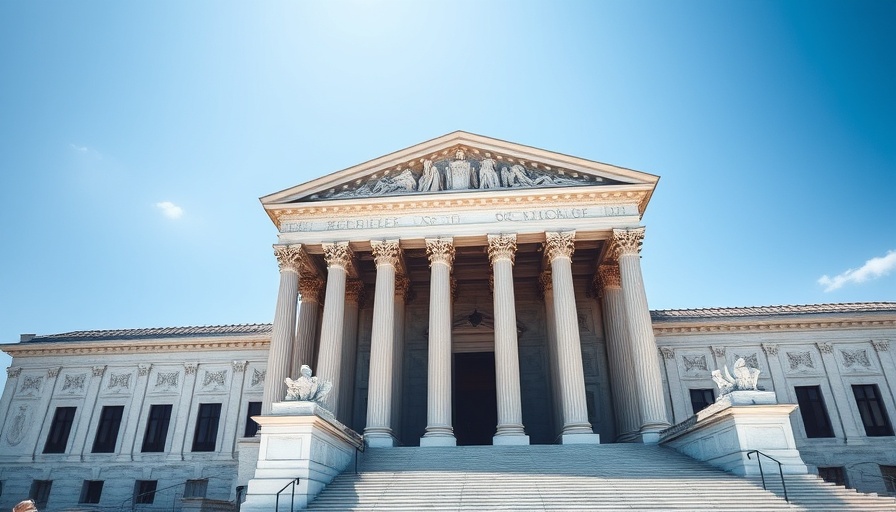
Supreme Court’s Landmark Decision on Age Verification for Adult Sites
The US Supreme Court recently upheld a law requiring age verification for pornography websites, marking a significant shift in how online content will be monitored and accessed. The ruling, which came as a response to increasing concerns about minors accessing inappropriate material, sets the groundwork for similar legislation across the nation. Advocates argue this is a necessary step in protecting children from exposure to explicit content, while critics caution about privacy rights and the potential for overreach by the government.
What Led to the Supreme Court's Decision?
The ruling addresses a growing sentiment among lawmakers and parents alike who feel the current digital landscape fails to adequately shield minors. In states like Texas, where the new law originated, lawmakers are striving to establish stricter regulations to prevent youngsters from viewing adult content online. Despite these protective measures, critics of the law worry about the implications for personal privacy and free speech on the internet.
The Implications of Age Verification Laws
Age verification laws could have broad implications for internet privacy and rights. Proponents of the legislation argue that filtering access to adult content is essential for protecting children, while opponents warn that such regulations may pave the way for excessive monitoring and data collection practices that compromise users’ privacy.
If enforced, sites challenging compliance could face heavy fines, and the responsibility will largely rest with website owners to implement these systems effectively. This raises questions about how technology companies will adapt to these changes and the methods they might employ to verify ages without compromising user data.
Comparative Analysis: How Other Nations Handle Age Verification
In a global context, age verification systems are already in place in several countries. For instance, the UK has been a pioneer in this field, requiring age verification for adult content websites. The European Union is also considering similar measures. By examining these frameworks, we can glean insights into the challenges and efficiencies inherent in implementing such laws. However, the US must also find a balance that safeguards constitutional rights while protecting its youth.
Social Perspectives and Public Opinion Trends
The public’s view on age verification laws is nuanced. Supporters argue that allowing children to access adult content can have serious developmental effects. Conversely, opponents emphasize the importance of internet freedom and warn against creating a slippery slope towards censorship. According to a recent poll, while a majority support age checks where minors are concerned, skepticism remains about the government's role in regulating online content.
Potential Challenges in Implementation
The implementation of age verification laws might not be as straightforward as anticipated. There are concerns surrounding how effectively website operators can check ages without causing undue inconveniences for legitimate adult users. Further issues could arise around defining what constitutes adequate age verification methods. With the proliferation of technology, the potential for unintended consequences looms large.
Looking Forward: The Future of Online Content Regulation
This ruling could foreshadow a future where age verification becomes standardized for adult content across the country. As technology evolves, the methods for age verification may also transform. Some tech companies are exploring advanced biometric methods, like facial recognition, that could confirm age without revealing personal information.
Conclusions and Community Action
As legislation continues to evolve in this area, it remains essential for citizens to stay informed and engaged. The Supreme Court's recent ruling on age verification serves as a critical juncture in the ongoing discussion about children’s access to online content and privacy rights. Being proactive in understanding these changes can empower citizens to contribute to the conversation and advocacy surrounding this important issue. Staying aware of local legislative changes and participating in discussions can lead to more balanced outcomes. Engage with your community to advocate for children’s safety while respecting individual rights.
 Add Element
Add Element  Add Row
Add Row 



 Add Row
Add Row  Add
Add 


Write A Comment